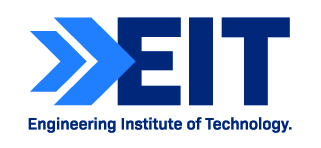Master of Engineering (Mechanical)
Provider:
Course Code:
MMEOC
CRICOS Code:
0100463
Qualification Level:
Masters
Course Area:
Engineering
Duration:
24-Month
Study Mode:
Full Time
Location:
Melbourne, Victoria, Australia
Course Fees:
AUD 51,700 Per Course
Delivery Mode:
On Campus
Target:
International
Intake:
February, July
Course Overview
This master’s qualification will equip you with the necessary skills to address the demands of the modern mechanical engineering industry. Students with a background in mechanical, instrumentation & control, electrical, or industrial plant and systems engineering will be particularly well-placed to benefit from this program as it is designed to prepare you for further career development in the mechanical design and maintenance industries. Upon completion of this program, you will gain skills and knowledge in the latest and developing technologies in mechanical engineering.
Course Structure
You must complete 48 credit points comprising twelve core units and one capstone thesis. The qualification may be structured as follows:
Semester One:
- MME501 Materials for Engineers
- MME502 Heat Transfer
- MME503 Industrial Hydraulics and Pneumatics
- MME504 Pumps, Compressors, Turbines and Drives
Semester Two:
- MME505 Process Engineering
- MXX507 Professional Engineering Management
- MME506 Advanced Fluid Dynamics
- MME508 Industrial Gas Turbines
Semester Three:
- MME602 Computer Aided Design and Manufacturing
- MME603 Finite Element Method
- DENG601 / MXX501/601 Engineering Practice and Key Research Methodologies
- MME604 Introduction to Aerodynamics
Semester Four:
- ME700 Project Thesis
Entry Requirement
| Admission Requirements | |
|---|---|
| Academic Entry Requirements | To gain entry into this program, applicants need one of the following: a) a recognized 3-year bachelor degree* in an engineering qualification in a congruent** field of practice. b) an EIT Bachelor of Science (Engineering) degree in a congruent** field of practice. c) a 4-year Bachelor of Engineering qualification (or equivalent), that is recognized under the Washington Accord or Engineers Australia, in a congruent**, or a different field of practice at the discretion of the Admissions Committee. d) a 4-year Bachelor of Engineering qualification (or equivalent) * that is not recognized under the Washington Accord, in a congruent** field of practice to this program. * With integrated compulsory 12-week professional industry experience, training or project work of which 6 weeks are directly supervised by a professional/eligible professional engineer as determined by EIT. ** All applicants must have evidence of automation and/or electrical exposure at undergraduate level and/or work experience. Congruent field of practice means one of the following with adequate content (fields not listed below to be considered by the Dean and the Admissions Committee on a case-by-case basis): • Industrial Automation • Industrial Engineering • Instrumentation, Control and Automation • Mechanical Engineering • Mechanical and Material Systems • Mechatronic Systems • Manufacturing and Management Systems • Electrical Engineering • Electronic and Communication Systems • Chemical and Process Engineering |
| Language Requirement | |
|---|---|
| IELTS Score (Minimum) | To be elligible for this course students must have an minimum overall score of: 6.0 ( with no individual band less than 6.0) |
Career Opportunities
Potential job roles include engineering and management positions in the following areas of expertise:
- Mechanical engineering design and consultation
- Supply chain management, quality assurance, and sales
- Operations, field services, and technical support
- Mining
- Oil & gas
- Robotics
- Automation
- Industrial project management and business development
- Manufacturing
- Maintenance and condition monitoring
- Automotive engineering
- Aeronautical engineering
- Heating, Ventilation and Air Conditioning (HVAC)
- Cities/councils and water corporation
Internship or Work Placements
EIT’s Master of Engineering programs require students to undertake 240 hours of paid or unpaid professional work-integrated learning. This can incorporate paid or unpaid internships, site visits, contributing to industry projects, and networking activities.
